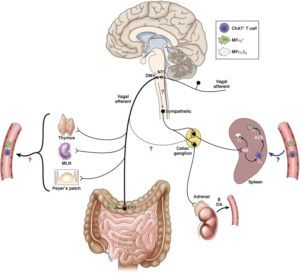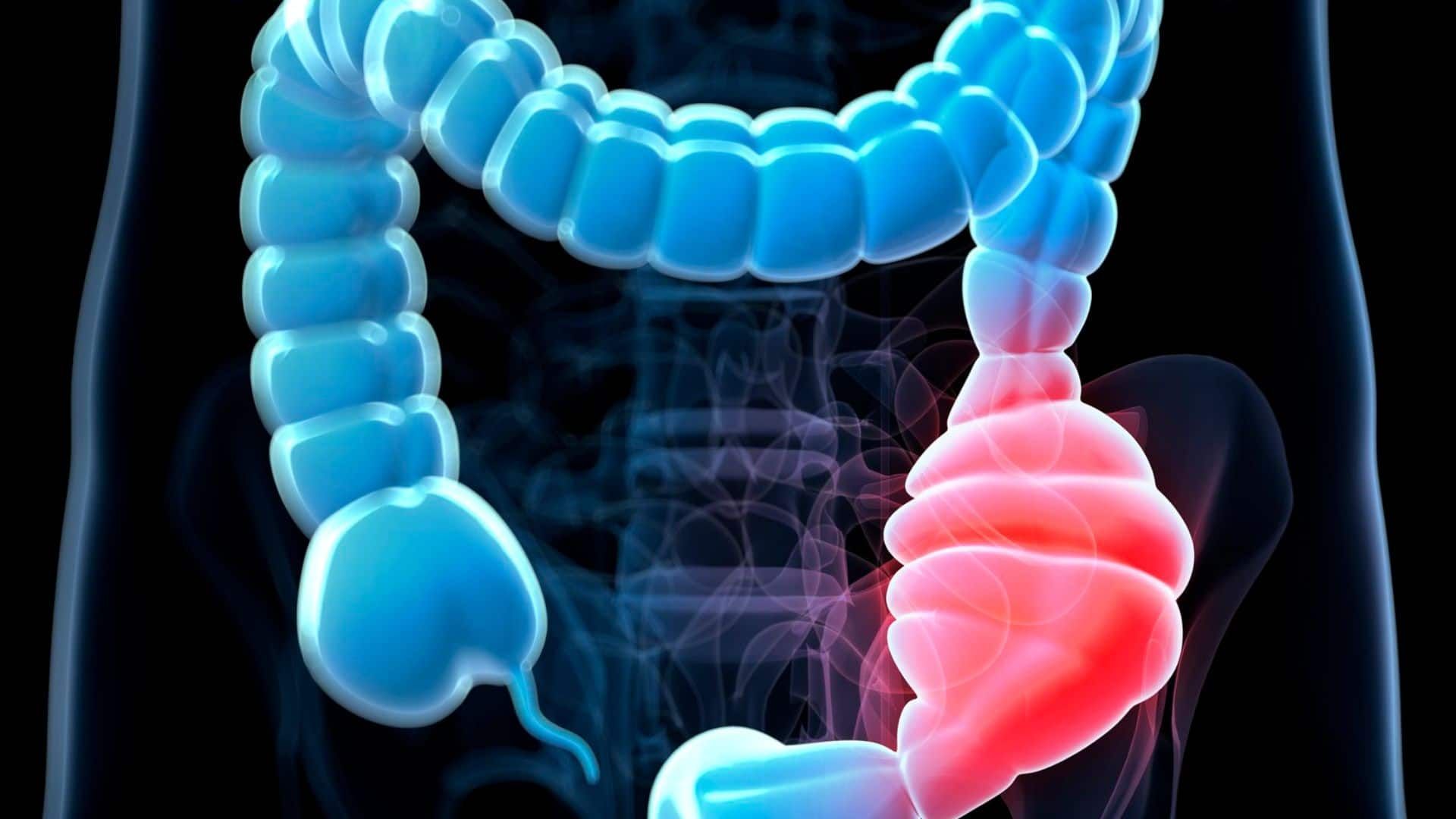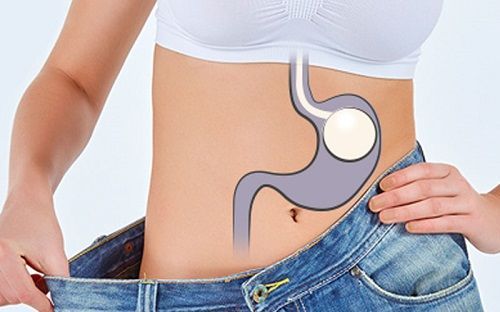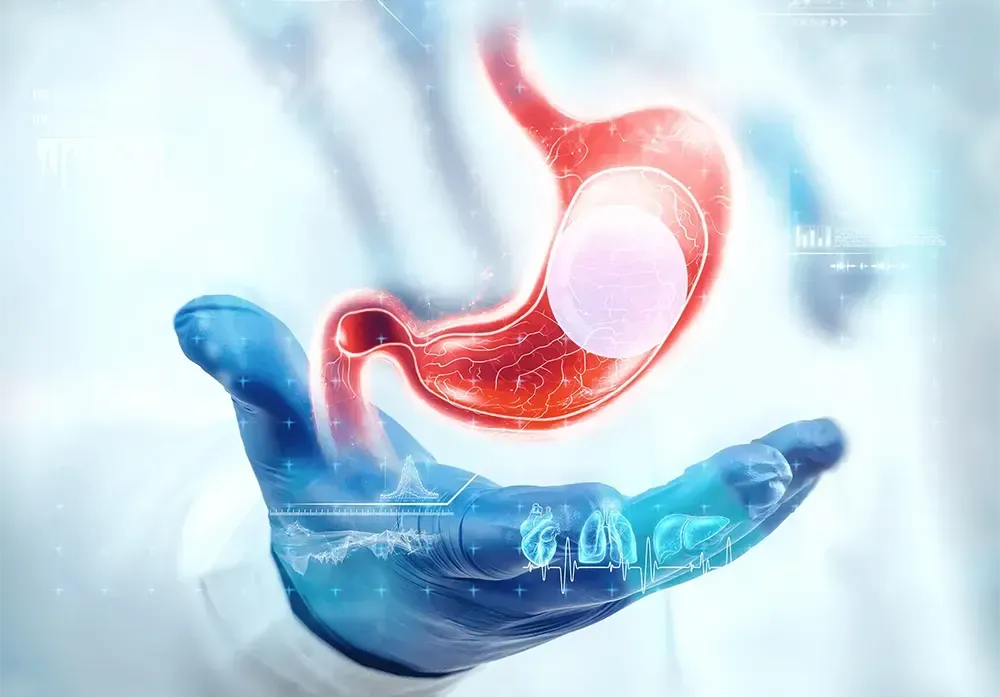The Vagus Nerve and Digestion… What’s the Connection?

It’s hard not to think of Elvis and the song “Viva Las Vegas” when talking about the vagus nerve. You can think of the vagus nerve as the “Strip”, a road that connects the brain to digestive system. So needless to say, the vagus nerve and digestion are intimately connected.
You may be able to improve IBS symptoms by activating your vagus nerve. It may help improve digestive issues associated with IBS, SIBO and GERD such as bloating, gas, diarrhea, constipation and acid reflux. Poor vagal nerve function can cause or exacerbate these symptoms.
What is the Vagus Nerve?
- The longest cranial nerve connecting the brain to the rest of your body. It passes through the neck and thorax to the abdomen, including your heart, lungs, gut, liver and pancreas.
What Does the Vagus Nerve Do?
- It regulates functions of the autonomic nervous system. This is the part of the nervous system that operates without having to think about it. These are very important bodily functions that happen automatically.
- Beating of the heart
- Breathing
- Blinking
- Liver and kidney function
- Digestion
- Manages the inflammatory system
- Urination
How Does the Vagus Nerve Affect Digestion?
The vagus nerve springs into action only when the body is in “rest and digest” mode (also known as the parasympathetic state). This can only happen when you are not in a state of stress (or in a sympathetic state). The vagus nerve stimulates and regulates digestive organs:
Stomach
- Churns food in the stomach.
- Produces stomach acid.
- If the vagus nerve is damaged or not functioning optimally, then we can see low stomach acid, low enzyme production (which needs stomach acid to be activated), which leads to poor digestion. Keep in mind, stomach acid is our first line of defense against unwanted bacteria, viruses, and parasites.
Liver
- Produces bile, transports it to the gallbladder and then to the small intestine to digest fat.
- Balances blood sugar through glucose production.
- Detoxify toxins.
Pancreas
- Produces enzymes that digest protein, fat, and carbohydrates.
- Balances blood sugar through production of hormones insulin and glucagon.
Small & Large Intestines
- Stimulates the muscles of the small and large intestine to push food and waste through the digestive tract.
- Serves as the communication pathway in which the collection of bacteria in our colon, otherwise known as the gut microbiome, communicate with our brain regarding the status of the digestive tract. Trippy!
Digestive Conditions Associated with Poor Vagal Nerve Function
Now that you know how the vagus nerve helps stimulate and regulate the organs of the digestive tract, it’s easy to see how poor vagal nerve function can be connected to the following conditions:
- Heartburn, acid reflux or GERD
- IBS – chronic constipation & diarrhea
- Inflammatory bowel disease such as ulcerative colitis
- SIBO (Small Intestine Bacterial Overgrowth )
How to Improve IBS Symptoms by Activating the Vagal Nerve
What causes poor vagal function? The big culprits are stress, fatigue, overwhelm and anxiety – which all go hand in hand. Activating your vagus nerve has been shown to reduce anxiety and activate the “rest and digest” (parasympathetic nervous system).
There are numerous ways to activate, tone and improve vagal nerve function:
Eat Mindfully
It’s not just what we eat that helps improve digestion but how we eat plays a role in vagal nerve health.
- Chew food until it’s liquified before swallowing. This may be close to 20 chews.
- Eat meals mindfully and slowly, without rushing.
Take a Deep Breath
- Slow, deep breathing will activate the vagus nerve and stimulate the “relaxation response” otherwise known as the “rest and digest” mode. Remember, digestion can only happen in this state!
- Most people take 10-15 breaths per minute. How many are you taking? Slow down and take 6 breaths per minute.
Take a Cold Shower
- Take a cold shower, splash your face with cold water or blast your body with cold water at the end of your shower.
- It may seem counterintuitive but the exposure to colder temperatures improves your stress response and helps reduce anxiety.
Make Some Noise
- Singing, humming, chanting, and gargling will stimulate the vagus nerve by activating the muscles at the back of the throat and vocal cords connected to the nerve.
Meditate & Practice Yoga
- Meditation (which often includes breath work) stimulates the vagus nerve, reduces stress and anxiety.
- Yoga helps to reduce stress and improve our mood. Plus, yoga increases GABA, a neurotransmitter in your brain, by stimulating vagal nerve fibers.
Get Moving
- Low-medium impact exercise stimulates the digestive system and therefore the vagus nerve. Plus, it helps move waste through our body and it helps reduce stress.
Get Acupuncture or a Massage
- Certain acupuncture points have been known to improve vagal function, especially the ear.
- Massaging specific parts of the body especially feet or carotid sinus (right side of the neck) can help lower heart rate and blood pressure, which can improve vagal function.
Activating your vagus nerve can be simple, easy, and done at home. If you have gastroenterology conditions , like IBS, SIBO and GERD, then the benefits create a more relaxed state of overall well-being and smoother digestion. You can see how important it is to activate the vagal nerve to improve IBS symptoms. So, choose any option above and start stimulating!
The post The Vagus Nerve and Digestion… What’s the Connection? appeared first on Gastro SB.










